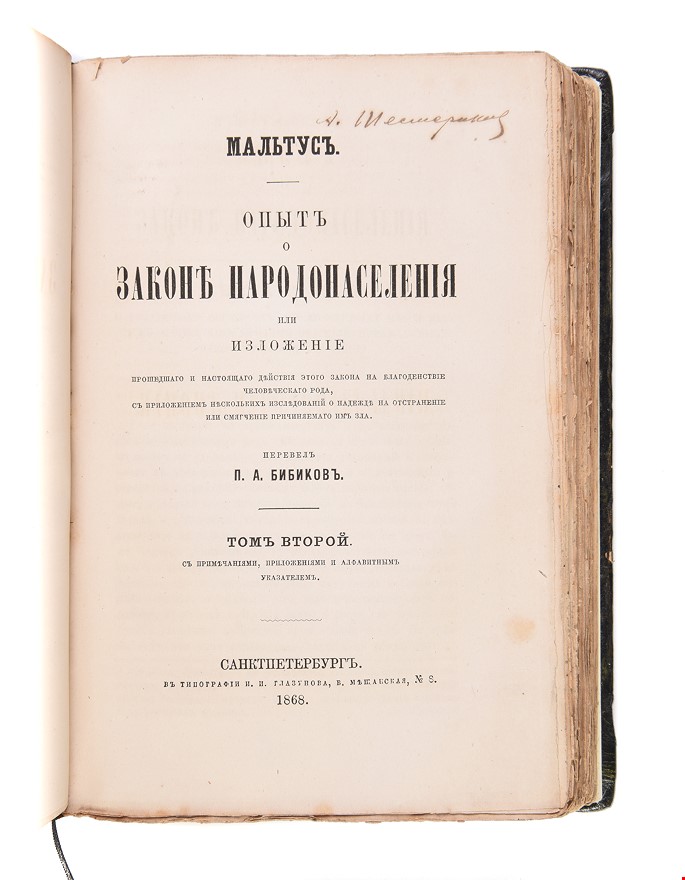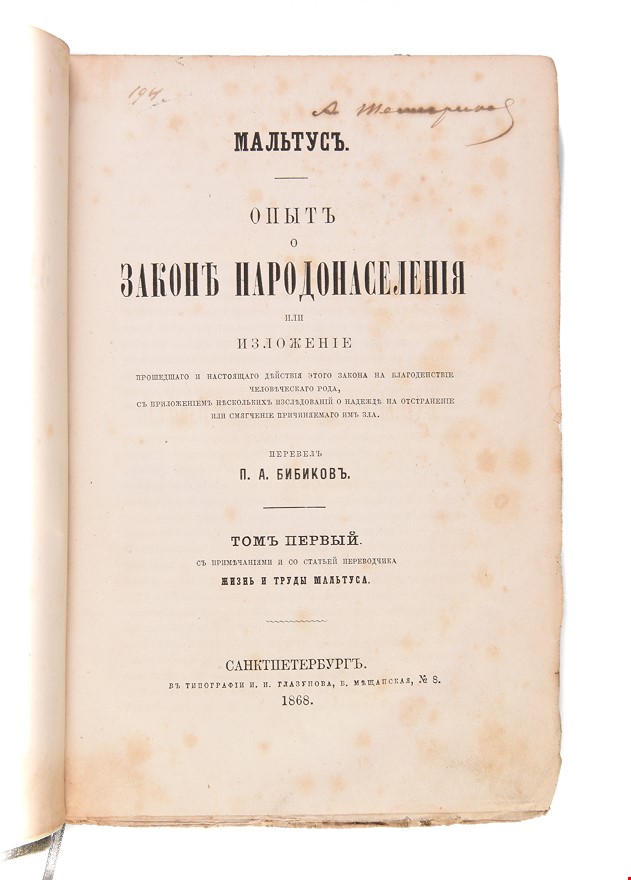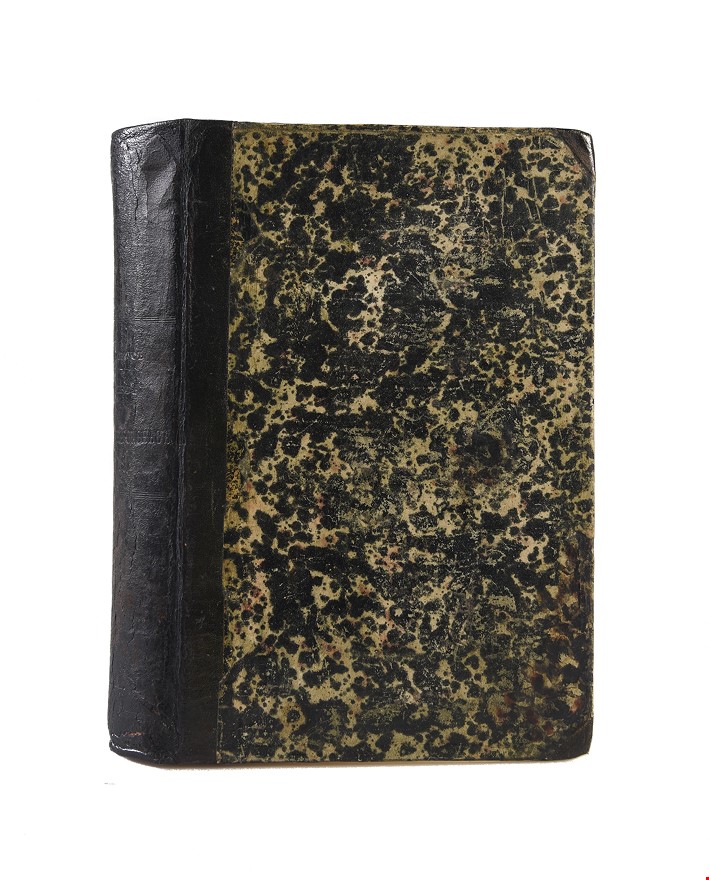Opyt o zakone narodonaseleniya ili izlozhenie proshedshago i nastoyashchago deystviya etogo zakona na blagodenstvie chelovecheskago roda. [An Essay on the Principle of Population; or, A View of Its Past and Present Effects on Human Happiness].
MALTHUS Thomas Robert (1868.)
£3000.00 [First Edition]
Please contact us in advance if you would like to view this book at our Curzon Street shop.
FIRST RUSSIAN TRANSLATION OF MALTHUS' ESSAY ON THE PRINCIPLE OF POPULATION
First edition in Russian. Two volumes bound in one. 8vo. 476; 468 pp. With the half titles. Contemporary half roan with marbled paper covered boards, edges untrimmed (rebacked and recornered with the original spine laid-down, new endpapers, some occasional light foxing mainly restricted to preliminaries of Vol. 1, neat contemporary ink ownership to both title pages, some occasional neat contemporary marginal highlighting and annotations in ink and blue pencil throughout both volumes). Saint Petersburg, E.E. Glazunov.
The first Russian translation of Malthus's Essay on the Principle of Population, a canonical text of classical economics and a continued reference point for all serious discussion of population to this day.
The present translation was undertaken by Pavel A. Bibikov (1831-1875), a well-known Russian historian, philosopher, and literary critic. A prolific translator, Bibikov had already produced an edition of Adam Smith's Wealth of Nations two years previously in 1866 and published an edition of Smith's Theory of Moral Sentiments in the same year as the present translation of Malthus, all of which appeared in Bibikov's books series the Library of Classical European Writers.
Malthus's Essay was fist published in English in 1798 and was heavily revised in subsequent editions, which were so substantially enlarged, rewritten, and re-titled as to be entirely new works. The source material for Bibikov's Russian translation was taken from the 1845 French edition by Joseph Garnier's (1813-1881), which was in turn based on the sixth English edition, being the final authorised edition to be revised by Malthus himself.
Malthus had various personal encounters with Russia: "when he stayed in Saint Petersburg while returning from his Scandinavian tour in1799, when he was elected a foreign fellow of the Imperial Academy of Sciences in 1826, and when he was given an honorary professorship at the Imperial Saint Petersburg University in 1830." However, "these events did not have any lasting influence [on Malthus] beyond inspiring a chapter on Russia in the Essay" (Faccarello, Izumo & Morishita, Malthus Across Nations, p. 17).
"Malthus was known in Russia by the 1830s not only for his ideas on population but also for his economic writings such as his Principles and Definitions that were introduced in lectures and textbooks on the subject of political economy at universities. In the 1840s Russian conservatives focused on the revolutionary aspect of the Malthusian doctrine while radicals criticised Malthus's conservatism. From the 1850s to the 1910s there were debates between Russian Marxists and Narodniks (Populists), such as Nikolay Chernyshevsky and Georgy Plekhanov, over the 'Malthusian law', the ‘agrarian question', and overpopulation. Malthus the demographer at last became directly relevant to Russia’s situation: agrarian problems and rapid population growth confronted Russia with her own Malthusian trap" (Faccarello, Izumo & Morishita, Malthus Across Nations, p. 17f).
Rare. OCLC list only two copies in North America, held by University of Illinois and Ohio State University, along with another copy in Switzerland at the International Labour Office library.
Stock Code: 243268






